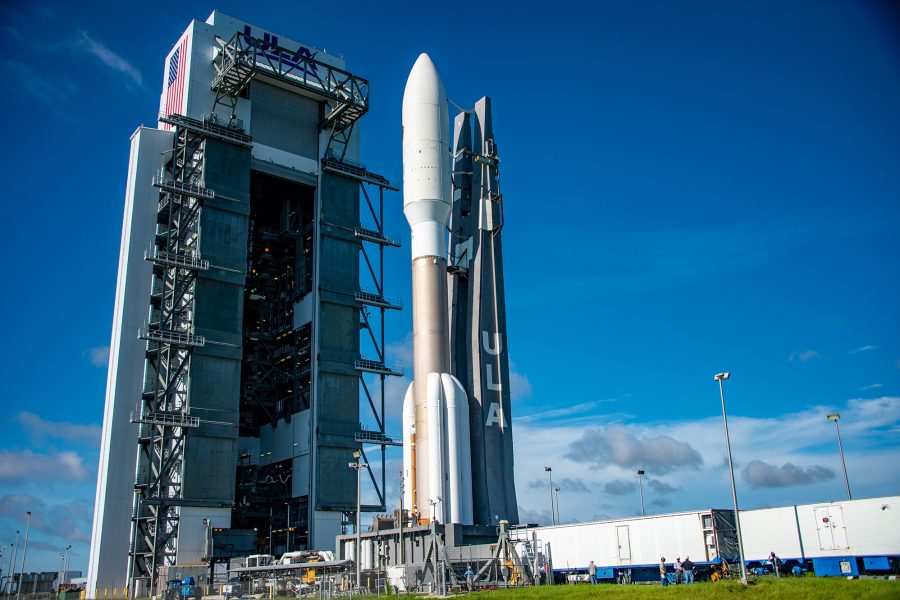PATRICK AIR FORCE BASE, Fla.—Space Force officials here want federal lawmakers to tweak spending rules so the military can use money from private companies to pay for infrastructure changes to the launch range at Cape Canaveral Air Force Station.
“We’re going to have to come up with ways that the launch providers can also help us out,” 45th Space Wing commander Brig. Gen. Doug Scheiss told Air Force Magazine in a Feb. 24 interview here. “They get a pretty good deal from being able to lease our facilities and the things that we do with them, but it’s very difficult [when] they go, ‘Hey, I’d like to be able to help out with that.’”
The Department of the Air Force currently can’t touch money provided by industry because of a legal firewall between public and private funding. Wing officials think creating a so-called “revolving fund” could help pay for—and speed up—projects from communications network upgrades to widening roads.
“This network, we probably would have had it already if the launch providers could have said, ‘Hey, we’ll help out with that,’” Scheiss said. “There’s maybe some changes in how we budget that we could take advantage of.”
Contractors would still need to complete the typical permitting and review processes to do that work, and conduct it in cooperation with the Space Force. If Congress approves the idea, it could affect both Florida’s Eastern Range and the Western Range at Vandenberg Air Force Base, Calif.
Tom Eye, the plans and programs chief for the 45th SW, said the idea began several years ago when rocket manufacturer Blue Origin wanted to widen the roadway at the cape. But because Congress appropriates money to the federal government to manage the range, lawmakers said funding from contractors would have to be funneled through Capitol Hill’s regular budget process instead of going directly to the Department of the Air Force.
“Nobody wants to tie their money up,” Eye said.
So the Space Force and NASA are trying again. Eye said Florida lawmakers in D.C. are receptive to the idea because they understand Cape Canaveral’s needs. The question is whether they can get enough lawmakers on board to pass new language.
“It’s just a matter of getting it through the wickets from the DOD into the system,” he said. “Now’s the time, because it’s so opened up now with the focus on space, whether it’s the Space Force or what’s happening in space.”
Some companies could benefit from the fund more than others.
Tony Taliancich, United Launch Alliance’s director and general manager of launch operations, said changing the law could be helpful but the long-time rocket provider has everything it needs right now.
“The people that are new coming in and want to do things differently and want to have a little more latitude to build brand new things, yeah, that might be of use to them,” he said. “But essentially, we’re positioned well for everything that we have.”
The company is open to ideas that make operations cheaper or more efficient. But Taliancich indicated the new fund could spark problems if one company wants to pursue projects that encroach on or otherwise hamper another’s facilities.
“You have to be careful in the long run of making sure that you’re not opening it up too much so that the different users can start to interfere with each other,” he said. “There continues to be a need for a really well-integrated, central understanding of what is and isn’t happening and making sure that’s communicated to all the different users, and we are heavily involved in that part.”
